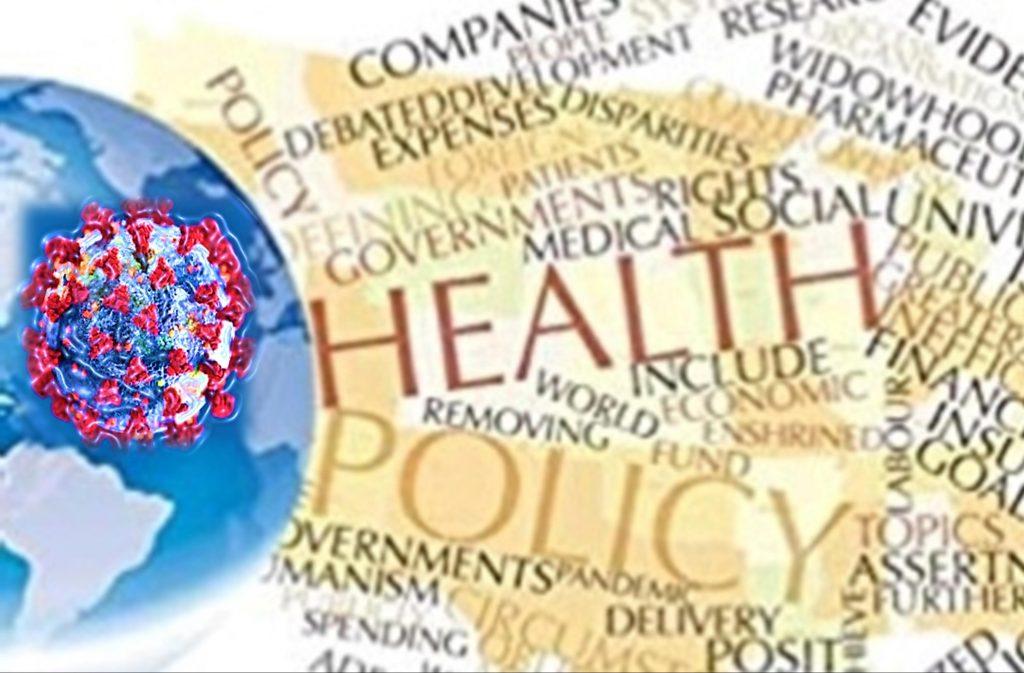
At the time of writing this article, more than 4 million people globally have fallen prey to the novel Corona virus, with over 248 thousand deaths, and the end is not in sight. According to the latest WHO situation report (as of May 11), the United Arab Emirates (UAE) has entered the community transmission phase of the pandemic with 18, 198 confirmed cases and 198 deaths so far, while Jordan has contained clusters of cases with 540 confirmed and 9 deaths.
Health policies in promotion of health
Health policies are critical for the well-being of societies, and therefore need to be accessible, implementable and well-developed. In health policies, there are two distinct elements, the first being ‘Healthcare Policy’ which focuses on addressing the needs, financial resources, and issues in providing healthcare services, and the second being ‘Policy for Health,’ which focuses on improving the overall health of a particular population. Both elements are crucial for a country’s health policy in order to promote health – and of course there are also links with what happens at the regional and global level. Health policies are not only meant to provide guidance and prevent harm, but also to actively promote health.
Health policies during the first wave of the pandemic – the UAE and Jordan as an example
In the case of the UAE, several policies, measures, and initiatives are currently being implemented to combat the spread of COVID-19. Policies for health and practice guides have been mandated and implemented, including social distancing as a means of containment; distance learning for schools and universities; and working from home for both the public and private sectors. Other policies include self-quarantine for those returning from overseas travels, the National Disinfection Programme which includes imposing curfews, and utilization of personal protection measures such as masks and gloves for the health care staff and public. Furthermore, movement between the different emirates has been restricted by closing down national road transport lines including bus lines and the metro.
Based on experience showing that it is vital to effectively engage the public through robust communication, keeping citizens and residents at the core of the process, the UAE government has also utilized different communication methods to disseminate health information and updates on case burden and regulations, and developed several channels for feedback and inquiries.
In addition, the country has leveraged innovative service delivery methods and technology such as telemedicine to provide much needed support and reduce the burden on health infrastructure (facilities), especially for non-critical and follow-up cases. It launched the ‘Doctor for Every Citizen’ initiative, which provides medical consultations 24/7, both for citizens and residents.
In the case of Jordan, the Jordanian government’s main line of approach to managing the epidemic involved uniting all health service providers under one umbrella and under its single (centralized) leadership. The government thus took the lead in maintaining public health and providing health services, including regulation of the health workforce and its coordination with the civil defence sector.
It set policies to enforce home isolation and required institutions to apply standards of health and safety for their workers, and provided testing free of charge for suspected cases and contacts, with the collective aim of controlling the speed of occurrence of cases and allowing optimal provision of care for those affected, especially critically ill cases requiring ICU admission.
Furthermore, the Jordanian government relied upon its formal and informal media channels to engage the public and spread awareness among citizens, refugees and migrant communities. about the importance of applying personal protection measures, and provided daily updates on the numbers and sources of cases.
Characteristics of UAE and Jordan Covid-19 health policies and room for further improvement
Eight features characterized COVID-19 related health policies used by the UAE and Jordan:
And while the UAE has been commended internationally for its rapid and widespread response, as well as its support for the WHO and other countries, a Rapid Response auditing exercise by the Mohammed bin Rashid School of Government has shown that earlier efforts could have been made in a number of areas, including:
Health policies after the first wave of COVID19
It is critical to learn from first-wave lessons in order to systematize responses during times of crisis. As the situation continues to evolve, health policies will similarly have to adapt to accommodate and mitigate this change and better serve their purpose of protecting the wellbeing of the population. Reorienting health system priorities to be proactive, preventive and protective (rather than reactive and curative) will allow us to stay ahead of the curve, not just attempt to flatten it.
The upcoming 6th Global Symposium on Health Systems Research 2020 aims to do just that: re-imagine our health systems for better health and social justice, to build resilient systems that will bend but not break in the face of the storm. In light of the current global pandemic of novel coronavirus disease (COVID-19), the Board of Health Systems Global has made the decision to undertake consultations and planning with the aim of transforming the Sixth Global Symposium on Health Systems Research (HSR2020), scheduled to take place in Dubai from 8 – 12 November 2020, into a global virtual event. The HSR2020 co-host partner, the Mohammed Bin Rashid School of Government, Dubai, is continuously and closely monitoring the situation of COVID-19 with the UAE’s relevant authorities and is keeping the HSR2020 Executive Committee and HSG Board updated for face to face meetings.